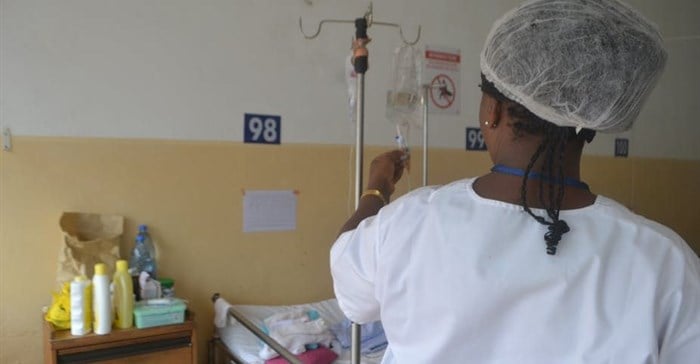Ghana needs a better policy to guide care for cancer patients

Palliative care is essential because it gives patients a choice in deciding how their pain and symptoms will be managed. Second, it ensures that patients enjoy the highest quality of life that is practically possible in the circumstances. Because of the increasing care required as a patient’s condition advances to the terminal stage, palliative care is a team approach. It includes nurses, doctors, social workers, volunteers, faith leaders and other health care professionals in supporting the care and well-being of patients and their families.
People are living longer than before because of advances in medical technology that makes the sick survive longer. The downside is that a longer life span increases the chance of a person experiencing illnesses such as cancer and heart disease, and this, in turn, increases the need for palliative care.
So palliative care is essential, especially when the illness is incurable or treatment is ineffective. And it is of great concern in contexts where healthcare resources for diagnosis and treatment are limited.
Cancers are among the leading causes of illness and death globally. Almost two-thirds of these deaths occur in developing countries, where palliative care is limited or nonexistent.
Cancer and care in Ghana
Ideally, palliative care should be accessible at all levels of health care and should place patients and families at its centre. The multi-disciplinary team approach ensures efficiency and is the best way to provide optimal palliative care.
In Ghana, patients with cancers and their families who seek services at oncology departments and palliative care units have to pay for treatment. In some cases, such services are inadequate or not within their means. Patients with national health insurance cards afflicted with most cancers and conditions like chronic kidney disease have to pay because the ailments are on the health insurance exclusion list.
Currently, patients have to pay for any care relating to cancer (other than breast or cervical cancer): diagnostics, chemotherapy and radiotherapy.
The cost of managing cancer, especially advanced cases, is usually beyond the financial means of patients and their families. Expecting them to pay for it does not conform to the equity principle advocated by the World Health Assembly. The scarcity of palliative care services and the financial barriers to using them amount to an ethical problem. It is unethical to deny cancer patients the same level of treatment given to, say, malaria patients.
Ghana does not have a clear national policy on palliative care. It is reported that it took the advocacy of a few women with breast cancer and the support of some health staff to lobby and petition Ghana’s parliament to get the treatment of cervical cancer under the national health insurance scheme.
The lack of access to palliative care in Ghana leads to considerable suffering for patients and their families. A recent qualitative study conducted by my colleagues and I among men with advanced prostate cancer and their family caregivers in Ghana highlighted two main issues. These were challenges and burden of care as well as the support and coping strategies adopted.
Participants expressed the overburdening nature of the care responsibility. They spoke of feeling “alone in the middle of a deep sea”, disruption of their lives, and unhappiness. The only support available to them is their social network, their extended family and their faith.
It is also an issue for health professionals as they are expected to show the “6Cs” – care, compassion, courage, communication, commitment, and competence. Healthcare professionals are unable to provide competent and collaborative palliative care without a policy and a budget provision.
Ghana needs a holistic palliative care policy and a clear, sustainable financial commitment to ensure its implementation. The Medical and Dental Council, as well as the Nursing and Midwifery Council of Ghana should ensure that the training of nurses and doctors in palliative care is prioritised. Government and relevant agencies must take the lead in ensuring that there is a practical palliative care policy that is tailored to the Ghanaian health system and the needs of patients.
This article is republished from The Conversation under a Creative Commons license. Read the original article.![]()
Source: The Conversation Africa

The Conversation Africa is an independent source of news and views from the academic and research community. Its aim is to promote better understanding of current affairs and complex issues, and allow for a better quality of public discourse and conversation.
Go to: https://theconversation.com/africaAbout Yakubu Salifu
Yakubu Salifu, lecturer, palliative care, Lancaster UniversityRelated
Transforming healthcare through partnerships 18 Mar 2025 An emerging field: Minimally invasive radiology techniques for cancer pain 4 Feb 2025 St Luke's Hospice in-patient unit shut down 24 Dec 2024 Remembering Michelle Botes: A beloved actress and iconic villain 23 Dec 2024 Record entry for annual Algoa FM Big Walk for Cancer 28 Oct 2024 ‘More SA men need to be aware of palliative healthcare’ – APCC 25 Jun 2024






















